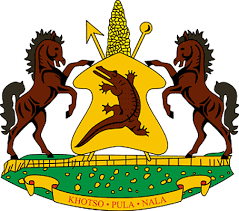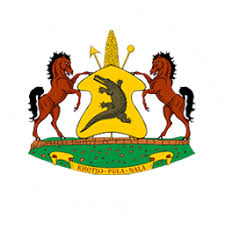Kananelo Boloetse
Sixteen years ago, in 2008, the Parliament of Lesotho took a significant step towards safeguarding our natural heritage and securing a sustainable future by enacting the Environment Act.
This comprehensive legislation, published in the Government Gazette on December 5, 2008, and commencing on June 16, 2009, was designed to protect and manage the environment, ensuring the conservation and sustainable utilisation of our natural resources.
Yet, despite the noble intentions and detailed provisions set out in this Act, its most crucial component—the establishment of the National Environment Council—remains unrealised.
As we mark World Environment Day, it is imperative to remind the government of Lesotho of its unfulfilled promise and urge immediate action to breathe life into this essential body.
The Environment Act of 2008 is a testament to visionary leadership, articulating a broad and ambitious framework for environmental management.
It assures every person in Lesotho the fundamental right to a clean and healthy environment, emphasizes sustainable development, and mandates the use and conservation of our natural resources for the benefit of both current and future generations.
It seeks to preserve biological diversity, reclaim lost ecosystems, and reverse the degradation of our environment. Furthermore, it stresses the importance of public participation, environmental education, and international cooperation in achieving these goals.
One of the most critical mechanisms envisioned by the Act to achieve these lofty objectives is the National Environment Council. This council is tasked with setting national goals, determining policies and priorities for environmental protection, promoting coordination among various stakeholders, and ensuring the integration of environmental considerations into socio-economic planning.
It is designed to be a central body that monitors progress, reviews the activities of line ministries, and issues directives to ensure effective implementation of environmental policies.
However, despite the clear mandate and detailed structure outlined in the Act, the National Environment Council remains non-existent. This inaction has rendered the Act a white elephant—a symbol of unfulfilled potential and neglected duty.
Without this council, the coordination and comprehensive oversight necessary for effective environmental management are severely lacking. The absence of this crucial body undermines the very essence of the Act, leaving our environmental policies fragmented and our natural resources increasingly vulnerable.
The consequences of this neglect are stark. Lesotho, like many other countries, is facing severe environmental challenges exacerbated by climate change. The recent severe drought affecting hundreds of thousands of people across country, the extreme weather patterns driven by El Niño, and the persistent issues of soil erosion, deforestation, and water scarcity are just a few examples.
These challenges highlight the urgent need for robust, coordinated, and effective environmental governance—a role that the National Environment Council is ideally suited to fulfill.
There is little hope that the myriad of laws currently being enacted by Parliament will be enforced if critical laws such as the Environment Act are not being implemented.
This is not the only law lying idle.
There seems to be a systemic attempt to undermine Parliament by not enforcing the laws it has passed. Such neglect not only weakens the legislative framework but also erodes public trust in the government’s commitment to addressing pressing issues.
If our environmental laws, designed to protect the very fabric of our nation, are left dormant, what faith can we place in the enforcement of other critical legislation?
The establishment of the National Environment Council is not just a bureaucratic formality; it is a critical step towards sustainable development and environmental stewardship. This council would provide the necessary oversight and coordination to ensure that our environmental policies are not only sound but also effectively implemented.
It would facilitate the harmonization of plans and policies across different sectors, promote public participation, and enhance accountability. Moreover, it would ensure that environmental considerations are integrated into all aspects of socio-economic planning, fostering a holistic approach to development that balances economic growth with environmental sustainability.
On this World Environment Day, as the global community rallies to encourage awareness and action to protect our environment, we must seize this moment to reflect on our own commitments and responsibilities. The government of Lesotho has a duty to honour the promises made in the Environment Act of 2008.
Establishing the National Environment Council is not only a legal obligation but also a moral imperative. It is a critical step towards fulfilling our commitment to a clean, healthy, and sustainable environment for all Basotho.
Let us not allow another year to pass with this vital piece of legislation languishing in obscurity. The time for action is now. The government must move swiftly to establish the National Environment Council, empowering it to carry out its mandate and ensuring that the principles of environmental management enshrined in the Act are translated into tangible, impactful actions.
By doing so, we can honour our past commitments, address our present challenges, and secure a sustainable future for generations to come.
Led by the United Nations Environment Programme (UNEP) and held annually on 5 June since 1973, World Environment Day is the largest global platform for environmental public outreach and is celebrated by millions of people across the world. World Environment Day 2024 focuses on land restoration, halting desertification, and building drought resilience under the slogan “Our land. Our future. We are #GenerationRestoration.”
Summary
- Sixteen years ago, in 2008, the Parliament of Lesotho took a significant step towards safeguarding our natural heritage and securing a sustainable future by enacting the Environment Act.
- This comprehensive legislation, published in the Government Gazette on December 5, 2008, and commencing on June 16, 2009, was designed to protect and manage the environment, ensuring the conservation and sustainable utilisation of our natural resources.
- It assures every person in Lesotho the fundamental right to a clean and healthy environment, emphasizes sustainable development, and mandates the use and conservation of our natural resources for the benefit of both current and future generations.

Your Trusted Source for News and Insights in Lesotho!
At Newsday Media, we are passionate about delivering accurate, timely, and engaging news and multimedia content to our diverse audience. Founded with the vision of revolutionizing the media landscape in Lesotho, we have grown into a leading hybrid media company that blends traditional journalism with innovative digital platforms.







